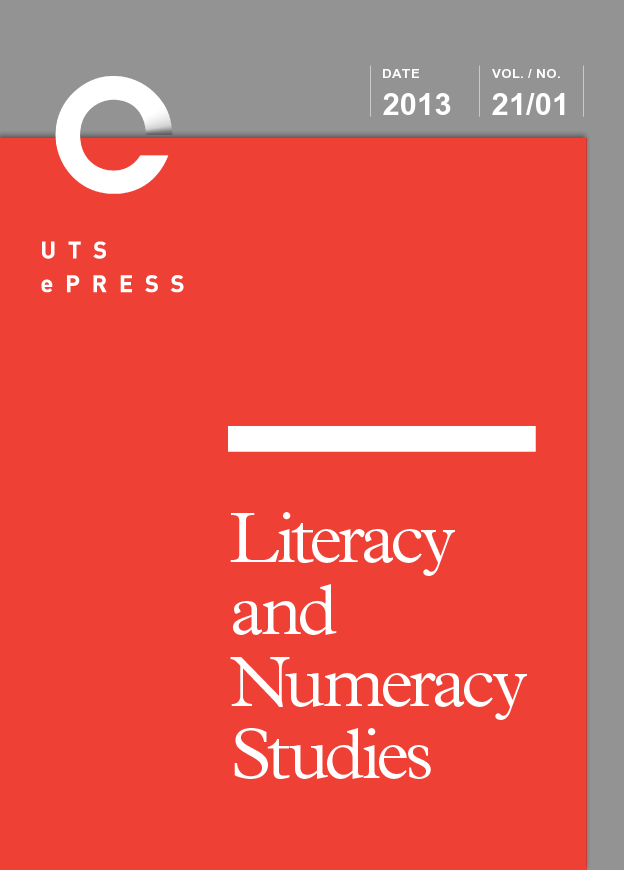At Play in the Space: The concept of 'the social practice approach' in the Scottish adult literacies field
Main Article Content
Abstract
This paper focuses on Scotland’s policy response to the International Adult Literacy Survey (1994-1998) and the ‘grand experiment’ (Merrifield 2005) to implement a social practices perspective of literacies.This radical perspective, derived from the New Literacy Studies (NLS), has profound implications for pedagogy and is promoted in Scotland as ‘the social practice approach’.
The paper begins with a discussion of the distinctive developments in Scottish policy in the context of the international interest in Adult Literacy. The rhetorical claims made in Scotland are then examined through a study which used a methodology drawn from Personal Construct Theory (PCT) to explore how practitioners understand ‘the social practice approach’. This research found little connection between the theoretical concepts of the New Literacy Studies and practitioners’ interpretations. Dissonances in the data highlighted power issues between policy and practice.In the latter part of the paper, Bernstein’s (2000) ideas about how theoretical knowledge is translated into pedagogical knowledge are used to explore the dissonances further.The paper concludes that there is an ideological conflict of purpose within the discourses of adult literacies in Scotland and that the critical pedagogy implied by the New Literacy Studies is also necessary within teacher education if practice is to be transformed in response to the radical social theory.
Article Details
Issue
Section
Authors who publish with this journal agree to the following terms:
a) Authors retain copyright and grant the journal right of first publication with the work simultaneously licensed under a Creative Commons Attribution License that allows others to share and adapt the work with an acknowledgement of the work's authorship and initial publication in this journal.
b) Authors are able to enter into separate, additional contractual arrangements for the non-exclusive distribution of the journal's published version of the work (e.g., post it to an institutional repository or publish it in a book), with an acknowledgement of its initial publication in this journal.
c) Authors are permitted and encouraged to post their work online (e.g., in institutional repositories or on their website) prior to and during the submission process, as it can lead to productive exchanges, as well as earlier and greater citation of published work (See The Open Access Citation Advantage Service). Where authors include such a work in an institutional repository or on their website (ie. a copy of a work which has been published in a UTS ePRESS journal, or a pre-print or post-print version of that work), we request that they include a statement that acknowledges the UTS ePRESS publication including the name of the journal, the volume number and a web-link to the journal item.
d) Authors should be aware that the Creative Commons Attribution (CC-BY) License permits readers to share (copy and redistribute the work in any medium or format) and adapt (remix, transform, and build upon the work) for any purpose, even commercially, provided they also give appropriate credit to the work, provide a link to the license, and indicate if changes were made. They may do these things in any reasonable manner, but not in any way that suggests you or your publisher endorses their use.
